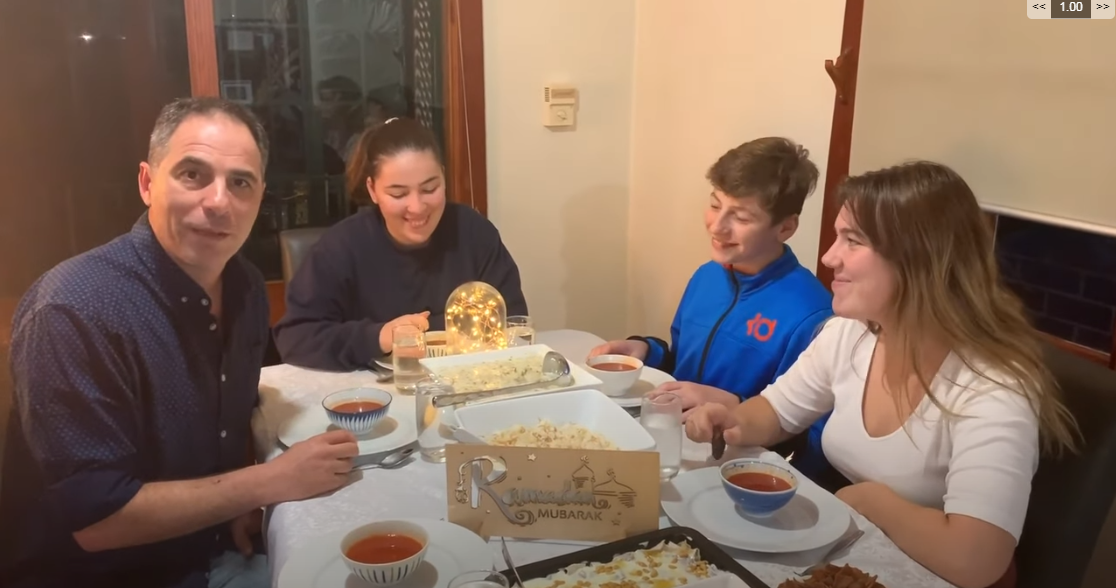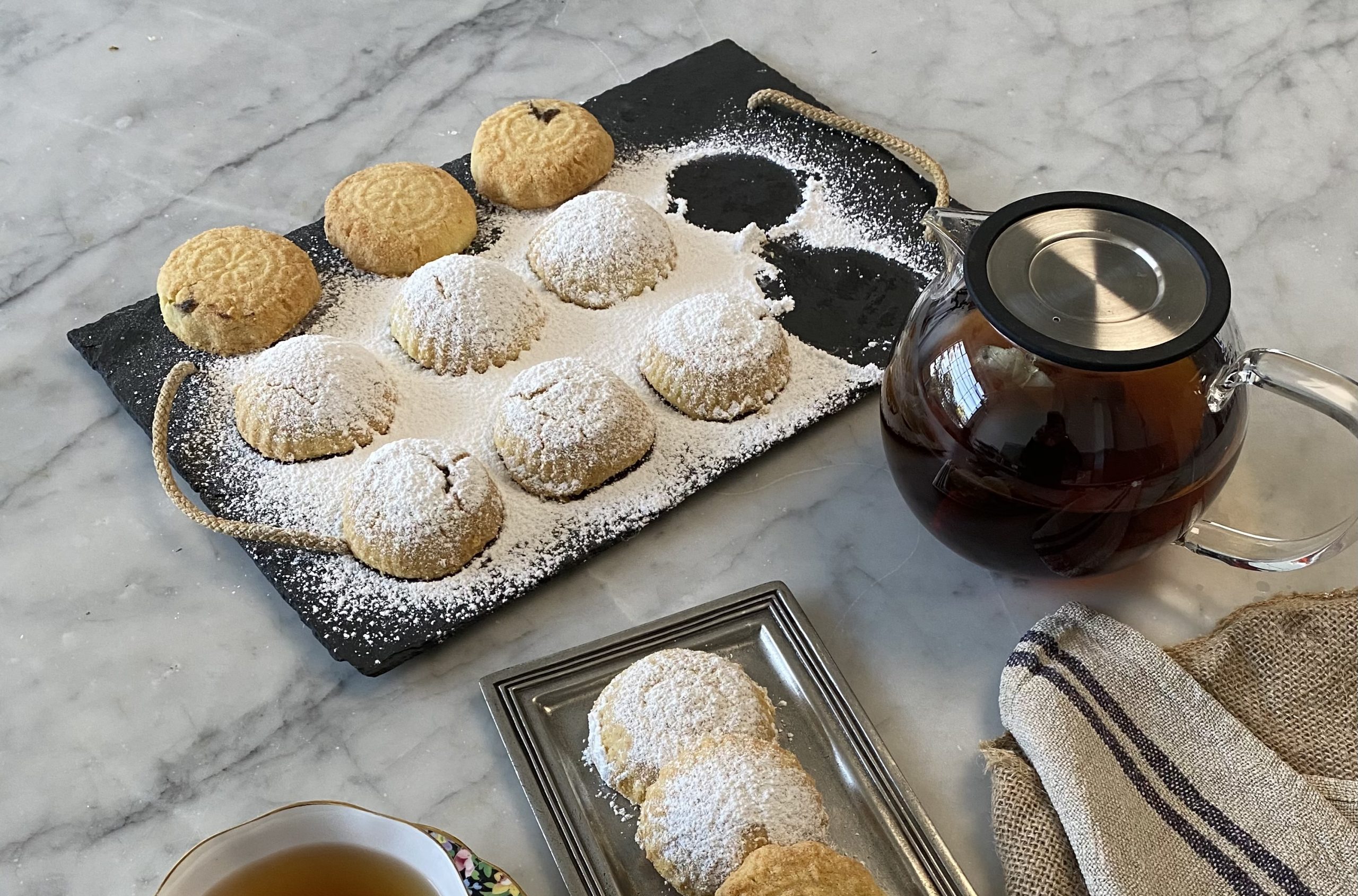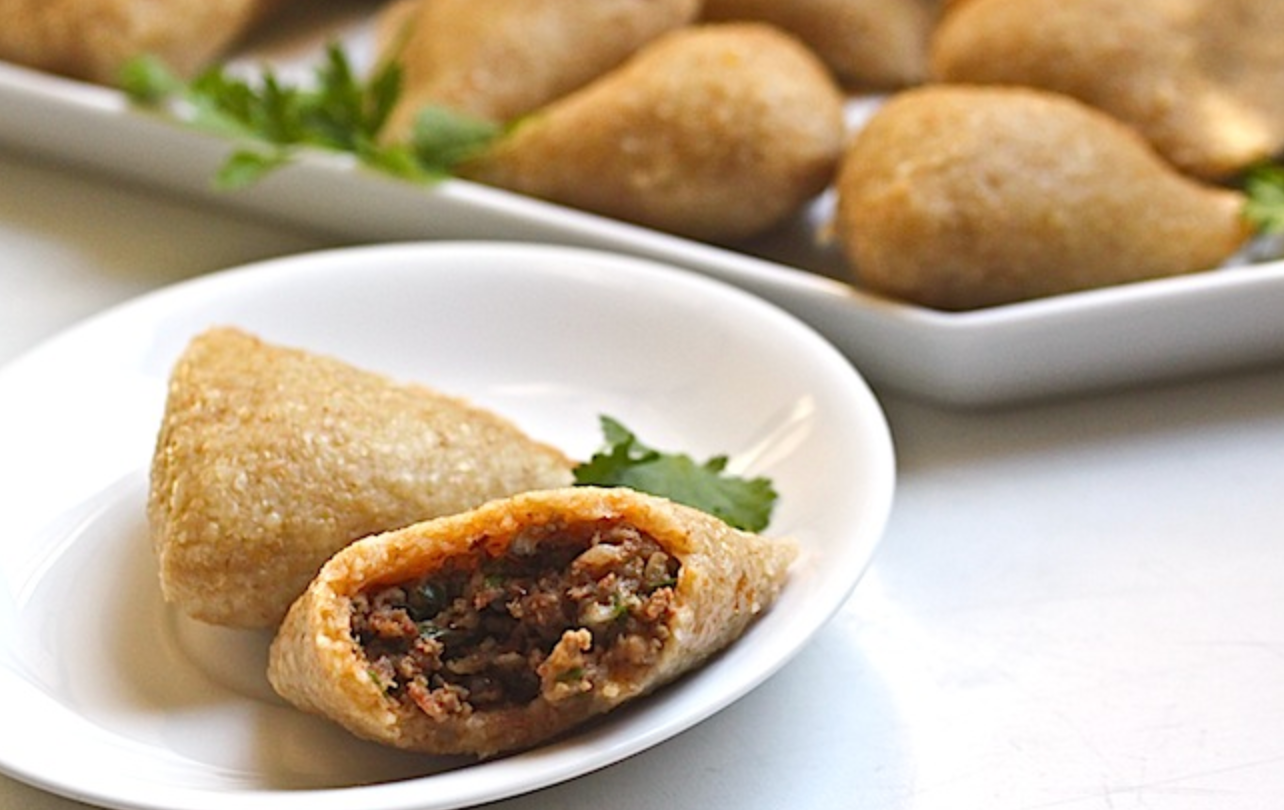Dib Family’s Lebanese Iftar
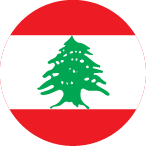 Lebanon
Lebanon 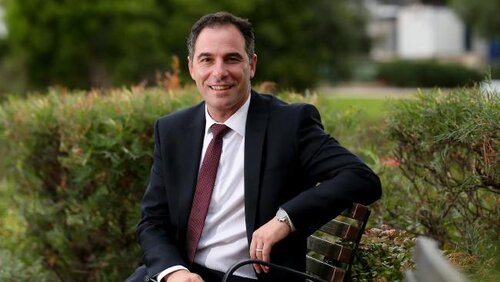
He was principal of Punchbowl Boys’ High for 13 years where he transformed its culture, bringing community and family and their values into the heart of the school and developed strong relationships with local organisations and government agencies. His wife Erin is the Year 12 Advisor at Burwood Girls High School. The school’s motto is "Not for ourselves alone" – a value the family share. Jihad and Erin have three children.
“Even though a lot of the focus on Ramadan seems to be the food, there is so much more. It is ultimately, a month of spirituality, of new starts, of bringing people together…”
The spirit, sounds and smells of Ramadan are easier to experience than to describe. Through the month of Ramadan, the beautifully melodic recitation of the holy Quran is heard much more often. In times when physical distancing and social isolation is not an issue, homes are filled with family and extended friends and neighbours (including non-Muslims) as guests for the breaking of the fast (Iftar). It’s one of those things about Ramadan; in addition to the spiritual element, there is an enormous focus on socialisation and charity.
When I invited my best mate to Iftar at our house over 25 years ago, he jokingly questioned whether I was trying to convert him – having eaten his food in the past, I jokingly replied that I wanted him to finally taste good food! We still laugh about that and we’re still best mates. He’s as Aussie, fair dinkum as you can get and I’m a bloke born in Lebanon who is just as Aussie as him, only with a different background. We can’t have our shared Iftar this year but I’ll still be ribbing him about my better meals!
Years ago, few people knew what Ramadan was. There was a general understanding that Muslims didn’t eat or drink during the day. I was embarrassed as a kid having to explain to my schoolmates why I wasn’t eating or drinking at recess and lunch. How times change; today, Ramadan is now better understood for what it is, a spiritual time that brings communities together and has a focus on charity. Today, I don’t find myself having to explain Ramadan and the many messages of support, solidarity and unity I receive from non-Muslim friends lifts my spirits incredibly. Regardless of our faiths, messages of support are always well received – they highlight the strength there is in a shared respect and understanding for one another and the things individuals believe in.
My wife, Erin, was born in Perth to New Zealand parents. Erin and I met at university during one of our education lectures. Ramadan is incredibly special to both of us. We love cooking together as a family and where possible, inviting as many people as we can to our home. We live the spirit of Ramadan and instil that into our children. Erin has learned about Islam, Arabic and even my Mum’s cooking over the years. During Ramadan, Erin is our rock when we struggle; she is up early for pre-dawn breakfast, cooks most meals, is motivated to decorate and volunteer, leads us in making sure we adhere to the customs and always reminds us of the purpose of the month.
Tonight, we have chosen Tomato Noodle Soup, Lebanese Style Rice, Dumplings in Goat Yoghurt (Shish Barak), Treet (also known as Meat Fatteh), Fattoush and some Lebanese Pancakes (Atayef). Apart from Fattoush, these dishes are all particularly associated with Ramadan for my family. My mum has taught us these recipes. She has a knack for her own measurement system developed over the years which makes it pretty stressful for us trying to replicate the meal.
We have our customs, first Iftar is always with mum; she makes everyone’s personal favourite meal and we start the month together. I am saddened we cannot have our extended family Iftars this year, however, that’s the situation we find ourselves in.
Even though a lot of the focus on Ramadan seems to be the food, there is so much more. It is ultimately, a month of spirituality, of new starts, of bringing people together, of empathy for others, of charity and self-discipline. It is a special time and one thing I will greatly miss this year are the many community Iftars, whether they be school ones, community ones or extended family ones.
Ramadan will be different this year, but the spirit, the intent and the self-discipline will be the same. For those of you observing, may your fasting and good deeds be accepted and for my non-Muslim friends, thank you for walking this journey with us.
We live in the greatest country on earth, and we are a 25 million piece jigsaw puzzle. Every single piece is unique but it connects with another and ultimately, every piece combined, creates something beautiful. We don’t need to be the same, we just have to find a way to connect because, for the puzzle to be fully complete, every piece must have a place and connection.
Ramadan Mubarak
Share this story
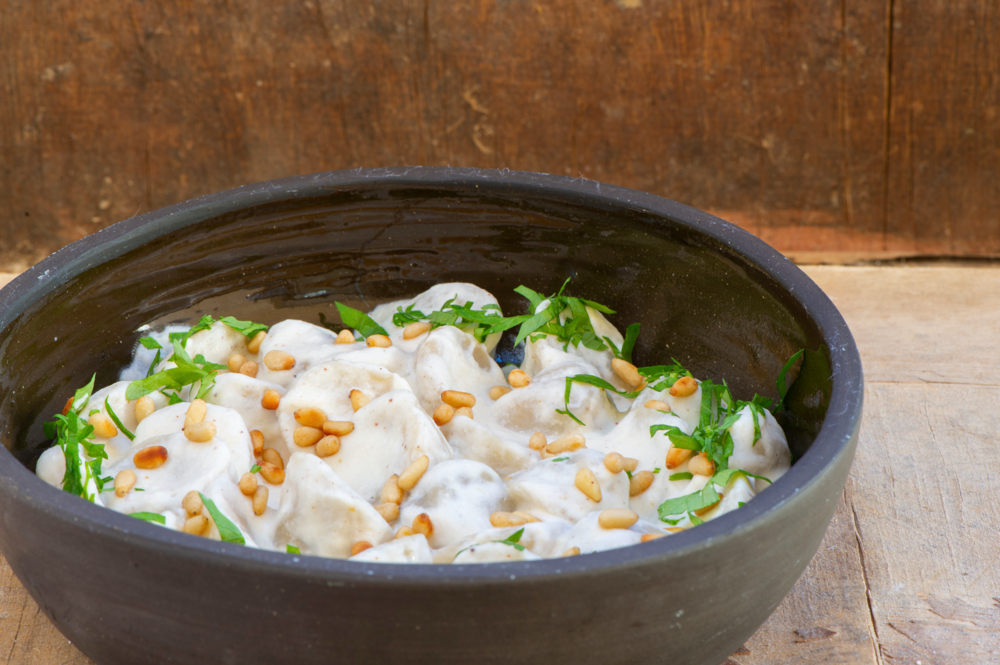
TREET (MEAT FATTEH)
Fry ghee in a pot. Add crushed egg noodles and fry until golden brown, add tomato paste and mix together. Pour in water, add spices and salt and bring to the boil. Lower the heat and simmer for about 2 mins.
1.Place meat, cinnamon, mixed spice and teaspoon of salt in a pot with water. Bring to the boil, scoop off the scum (froth) from the meat and discard. Continue to boil for an hour. Set aside.
2.Meanwhile, turn on the oven to 180 degrees, break up the bread into small 2cm pieces, place in a baking tin, (I use my Brownie tin as it’s the perfect size for our family.) Place in the oven until the bread goes crispy. Set aside.
3. Mince the garlic with a pinch of salt, add this to the yoghurt and about 2-3 tablespoons of water.Set aside.
4.Very close to the time of serving, over the heat scoop the meat and some of the liquid (about 2 ladles) onto the bread and warm it all up. Pour the yogurt mixture over the meat and bread.
5. Fry the ghee in a small fry pan and brown the pine nuts. Pour the pine nuts and ghee over the yogurt and serve.
SHISHBARAK
-
Pick off leaves of coriander and put in a bowl of water to soak and remove all sand etc.
-
Put the goat yoghurt and water into a large pot
-
Mix the cornflour with a little water to make a paste and add to the goat yoghurt mix. Warm over the heat. Stir the pot occasionally.
-
Meanwhile, drain the coriander and chop finely.
-
In a small frypan, fry ghee and add minced garlic and coriander. Set aside for later.
-
Add frozen dumplings to the yogurt mix. Cook until dumplings are soft and cooked through.
-
Add the coriander mix to the yoghurt and dumplings. Salt to taste.
